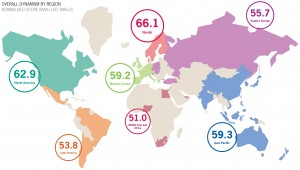-
Financial Reporting Audit
Our Audit division has the capacity and knowledge to provide an assurance that the Final Financial Statements episodes will be reliable and timely
-
Compliance
We are committed to providing a service with the highest standards of excellence, integrity, and experience
-
International Financial Reporting Standards
Grant Thornton International member firms combine broad international experience with technical know-how in audits of IFRS based financial statements
-
Mexican Social Security & Local Tax
Growing businesses need strong tax management to meet current and future tax liabilities and we can help you achieve this, whatever challenges you face
-
International Taxes
Your people are probably your business’ most valuable asset. If you choose to send them overseas you will face certain tax liabilities, social security, and pension obligations
-
Prevention and detection of money laundering and anti-corruption practices
Prevention and detection of money laundering and anti-corruption practices. The process of hiding or disguising the existence, illegal source movement, fate or illegal use of property or funds, proceeding from illegal activities
-
Business consulting
Our business consulting services can help you improve your operational performance and productivity, adding value throughout your growth life cycle
-
Business risk services
Businesses worldwide are facing constant challenges as they try to navigate the wide range of risks involved in complex global markets
-
Forensic services
Fast-growing organizations need advisers that can dig deep into their business and provide detailed solutions
-
Recovery & reorganisation
We focus on identifying and resolving issues affecting profitability, protecting enterprise value and facilitating a full recovery where possible
-
Transactional Advisory Services
We can help you understand the value drivers behind successful transactions
-
Internal Audit
In today's global economy, organisations - both public and private - must demonstrate that they have adequate controls and safeguards in place
-
Forensic services
Fast-growing organizations need advisers that can dig deep into their business and provide detailed solutions
-
Forensic services
Fast-growing organizations need advisers that can dig deep into their business and provide detailed solutions
-
Forensic services
Fast-growing organizations need advisers that can dig deep into their business and provide detailed solutions
-
Forensic services
Fast-growing organizations need advisers that can dig deep into their business and provide detailed solutions
-
Forensic services
Fast-growing organizations need advisers that can dig deep into their business and provide detailed solutions
-
Forensic services
Fast-growing organizations need advisers that can dig deep into their business and provide detailed solutions
-
Forensic services
Fast-growing organizations need advisers that can dig deep into their business and provide detailed solutions
-
Payroll Outsourcing
Payroll and, in addition, personnel administration are the biggest and most time-consuming challenges facing expanding organisations
-
Accounting outsourcing
The goal is to increase the effectiveness of accounting processes, supporting your core business. It was created especially for businesses with high information needs, usually related to working in an international environment
-
Human Capital Services
We provide solutions for your company in order to identify, evaluate, reward and retain the best talent
New index provides fresh perspective on business location decisions
The global economy is going through a very difficult phase. Growth in key emerging markets such as China, Brazil and India is slowing. In the United States, the economy seems to be treading water as everyone waits for the presidential elections in November, despite the looming ‘fiscal cliff’. And the eurozone remains in crisis despite signs that the European Central Bank is prepared to do ‘whatever it takes’ to save the single currency. Recent forecasts expect global trade to slow to 3.7% in 2012, compared with 6% in 2011. [1]
Against this bleak economic outlook, the key question for business leaders, is ‘where do I look for growth?’
‘Do not rule out developed economies’ is one of the key messages from the Grant Thornton Global Dynamism Index (GDI), which we released today. The index suggests that despite short term concerns, developed economies still offer the strongest overall environments for dynamic organisations to flourish. [2] Singapore tops the ranking, followed by Finland, Sweden, Israel and Austria. The highest ranked emerging market is Chile in 13th.
At first glance, the results seem counterintuitive: surely the BRIC economies are the most dynamic in the world? Why is China ranked 20and Brazil 30?
The GDI is far more than a measure of economic growth. Other key aspects of what makes an economy a good place for business growth – the labour force, financing environment, science and technology, regulations, the rule of law – all contribute to the rankings. Therefore whilst faster growing emerging markets may offer more attractive labour productivity and consumer demand growth rates, many developed economies remain relatively less risky investments due to open, trade-oriented policies and well-established legal systems.
It is unlikely that the global economy will recover before the end of the year and reason says it is a risky time for business investment. However, we hope growth will pick up in 2013 following the US elections and a resolution to the eurozone crisis, and instinct may be leading to dynamic organisations to look abroad for expansion opportunities. If they consulted the GDI, it would tell them not to discount the long-term growth potential of many developed economies.
[1] Economist Intelligence Unit
[2] “Dynamism” is defined as changes to the economy which have enabled recovery from the 2008-09 economic recession and are likely to lead to a fast rate of future growth.


